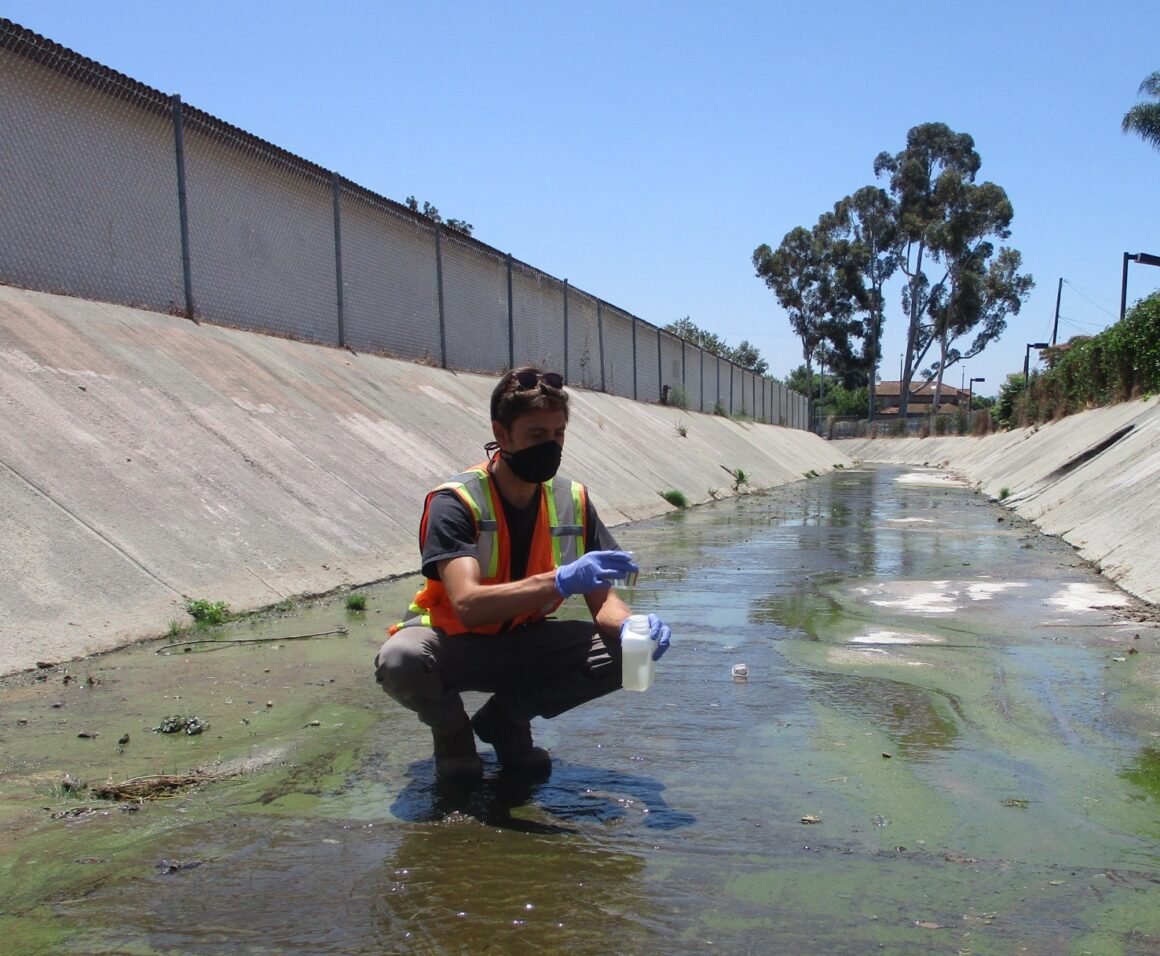D-Max staff is experienced in designing and conducting storm water monitoring programs, including:
- Dry Weather Outfall Monitoring
- Wet Weather Monitoring
- Special Studies
For over 20 years, D-Max has conducted over 220 dry weather municipal separate storm sewer system (MS4) monitoring programs for various municipalities throughout San Diego County. We have also assisted municipalities in conducting upstream investigations to identify sources of pollutants, which include field screening and sampling at several locations within each city in accordance with the San Diego Regional Water Quality Control Board (RWQCB) requirements. Field activities included conducting visual observations, performing field tests for conductivity, pH, temperature, turbidity, ammonia, nitrate, reactive phosphorus and surfactants, and collecting grab samples for laboratory analysis of dissolved metals, organophosphate pesticides, oil and grease, and indicator bacteria. Trash assessments were also conducted to assist cities in converting their dry weather and trash data to the County’s regionally accepted data sharing format As part of Jurisdictional Runoff Management Program (JRMP) development, we developed Dry Weather Major MS4 Outfall Discharge Monitoring Program procedures for routine field screening, upstream source identification, and non-storm water discharge prioritization. The documents included detailed plans and timelines to implement current Municipal Permit requirements. We have also developed procedure manuals for transitional outfall monitoring, persistent flow monitoring, and follow-up investigations, including prioritization procedures, for several cities. We work with our clients to analyze their outfall data to select target sites and drainage areas where improvements, such as flow reductions, are likely to be most achievable.
D-Max has conducted several wet weather monitoring programs to help municipalities gain additional data about constituents associated with total maximum daily load (TMDL) requirements for multiple rivers in the region. The monitoring includes collecting composite samples over the course of a storm at strategic locations throughout watersheds during rain events. D-Max has prepared hydrology studies for detention basin sizing, and also provided design assistance for retrofitting flood control detention basins for use as regional treatment control best management practices (BMPs) for Standard Urban Storm water Mitigation Plan (SUSMP) compliance. We have conducted annual wet weather monitoring for clients since 2004. Monitoring includes collection of wet weather composite samples of runoff entering flood control detention basins, as well as outflow samples after detention to assess effectiveness of the detention basins. The monitoring results were used in a study to demonstrate the effectiveness of the retrofitted detention basins as storm water BMPs.
D-Max has completed special studies to identify sources of non-stormwater flow in response to RWQCB requests. We have also completed special studies to identify groundwater inputs to the MS4. Such studies to identify and exclude natural sources are especially important given the RWQCB emphasis on eliminating anthropogenic non-storm water flows. D-Max has helped clients fulfill associated Proposition 13 Grant requirements by preparing sampling plans, Quality Assurance Project Plans, Annual Monitoring Reports, and Project Assessment and Evaluation Plans. Projects have included creek restoration and flood control components, including widening and revegetating creek channels. We also conducted water quality monitoring, which included a specially designed trash assessment to meet RWQCB requirements and a total dissolved solids (TDS) component analysis to help clients gather more information about potential causes of the chronically elevated TDS readings in surface water bodies.


